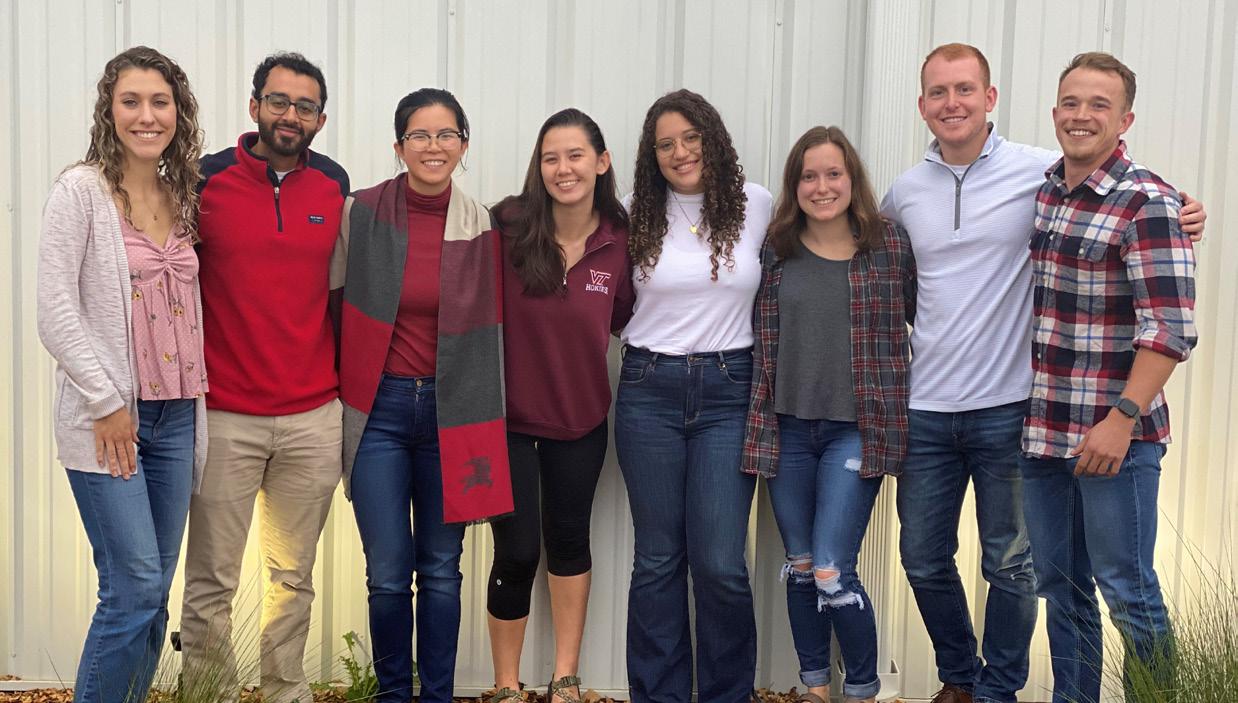PROGRAM AREAS PROGRAM AREAS
SUSTAINABLE LAND DEVELOPMENT
The Department debuted a new graduate program in Sustainable Land Development this year. There is no comparable engineering program in the country that uniquely prepares students for careers in land development. This program will help meet the need for more highly skilled land development engineers with broad knowledge in areas of water resources, transportation, urban planning, zoning law, land use, finance, real estate, and construction. The program allows students to customize their learning experience by taking courses from multiple departments and even from other universities. The flexibility of courses creates a truly one-of-a-kind graduate experience. Our new program builds on the Department’s successful undergraduate program in Land Development and our Department’s industry supported Land Development Design Initiative (LDDI). Just like students in our undergraduate Land Development program, our graduate student courses heavily involve practitioners as mentors. Our first endeavor as a new program was collaborating with LDDI to host a graduate seminar series. Each Friday during the Fall semester, our graduate students and our LDDI industry members joined together to learn about broad topics associated with sustainable design and land development. We covered topics like how to measure urban tree canopy, the benefit of conservation easements, and land development challenges for megawatt solar energy farms. Undergraduate students and students from other departments began joining the seminar because of our engaging speakers and topics that spanned complex issues associated with sustainability.
Our graduate students also benefited from a recent partnership between LDDI and the Institute for Sustainable Infrastructure. All of our graduate students were able to become Envision Sustainability Professionals (ENV SPs). The Institute, and an LDDI member, Paul Johnson of Charles P. Johnson & Associates, donated trainings for our students to earn their ENV SP certification. We look forward to our program in Sustainable Land Development growing. The Department, in collaboration with the Real Estate program, plans to hire an additional faculty member with expertise in both land development and real estate. We are also taking steps to
Sustainable Land Development graduate students market our program to students from undergraduate engineering programs throughout the state. Increasing the number of graduate students will also help strengthen our undergraduate Land Development program. For example, current graduate students, Morgan and Akul, provide a helping hand to students as graduate teaching assistants. As former undergraduate students in our program, they are familiar with the content and can empathize with where students often struggle throughout the semester. Morgan was attracted to our graduate program because of its interdisciplinary nature and the ability to take courses outside of civil engineering, including
options in planning, urban affairs, and policy. Akul was also excited by the graduate program’s interdisciplinary format, and wanted to learn and integrate new skills beyond those confined to traditional academic silos. Morgan’s graduate research is exploring housing policies and their role in land development. Akul’s research is case based. He is building educational modules to teach students about complex projects that involve adaptive reuse, urban sprawl retrofitting, and brownfield redevelopment. His cases will be integrated into our undergraduate courses. For employers, the ability for students to spend an extra year to two years studying topics like housing policy and principles for sustainable development means students like Morgan and Akul are ready to create and add new value from day one. They have a deeper set of skills and knowledge that comes with a graduate degree. Morgan and Akul, as well as the other students in our program, practice and refine their ability to communicate both written (in a thesis) and through public speaking (oral defense of their research) during their Master’s degree, which will prepare them for working closely with clients and across disciplinary boundaries in their career. A goal for this upcoming year is to increase the number of fellowships the program is able to provide to exceptional students who are interested in pursuing careers in sustainable land development. This year all of our graduate students were provided an assistantship or fellowship. As the program grows in student enrollment, we want to also grow the number of fellowships to support our outstanding students who will soon influence design and development of our towns and cities throughout their careers.
2021 VIA REPORT • 15













